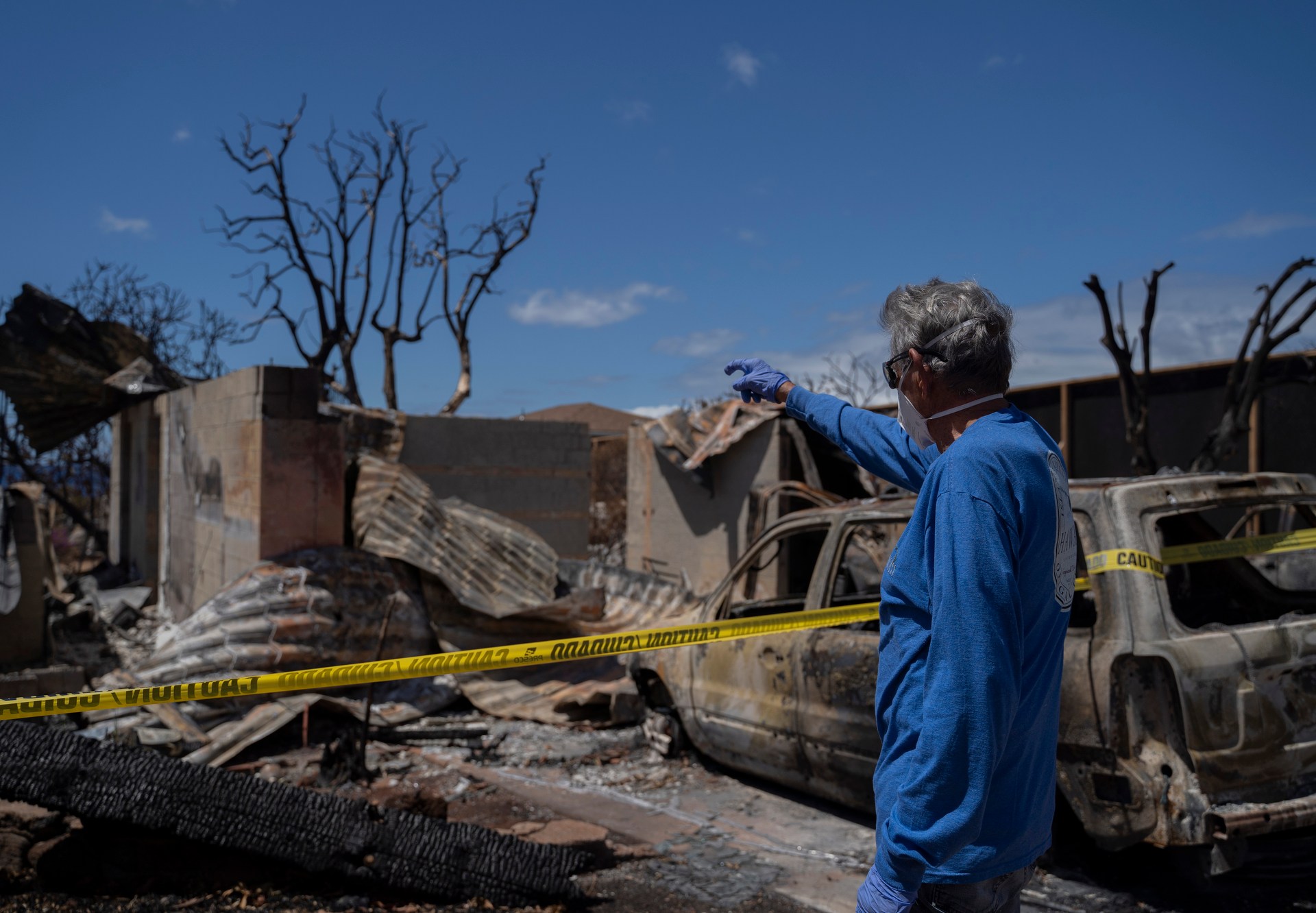Leola Vierra stepped gingerly among the hardened pools of melted metal, charred wood and broken glass that are almost all that remain of the home where she lived for nearly 50 years.
Sifting through the rubble, she found two cow-patterned vessels, part of her extensive collection of bovine figurines. Nearby, her son discovered the blackened remnants of his late grandfather’s pistol from his days as a Lahaina policeman from the late 1940s to 1970s.
There was no sign of the beloved cat, Kitty Kai, that used to greet Vierra when she came home from work and church.
“I’m so sad — devastated,” she said. “This was my home.”
Vierra, her husband and two adult children returned to the property on Tuesday for the first time since the deadliest wildfire in more than a century in the United States whipped through on August 8, obliterating the historic town of Lahaina and killing at least 97 people.
They were among the first small group of residents to be allowed back into the burn zone to see where their homes once stood.
They wore boots, white coveralls, face masks and gloves to protect them from toxic ash and other dangers, but their visit was cut short after about 15 minutes when workers showed up and cordoned off the property with yellow caution tape.
A US Environmental Protection Agency official informed them over the phone that a crew did a “last quality assurance check” on Saturday afternoon and didn’t like not knowing what was underneath the crumpled remnants of the roof. A team would return on Wednesday morning and the agency would call with an update, the official said.
Afterwards, the family milled about on the sidewalk and looked toward the property.
The Vierras have been staying at a resort hotel, like thousands of other survivors whom the government has put up in temporary housing across Maui. Vierra’s son Mika, who works in sales in Utah, said he and his sister have decided to rebuild when the cleanup is done, whenever that is.
“We’ll be sure to rebuild something nice where our old house used to be,” he said.
